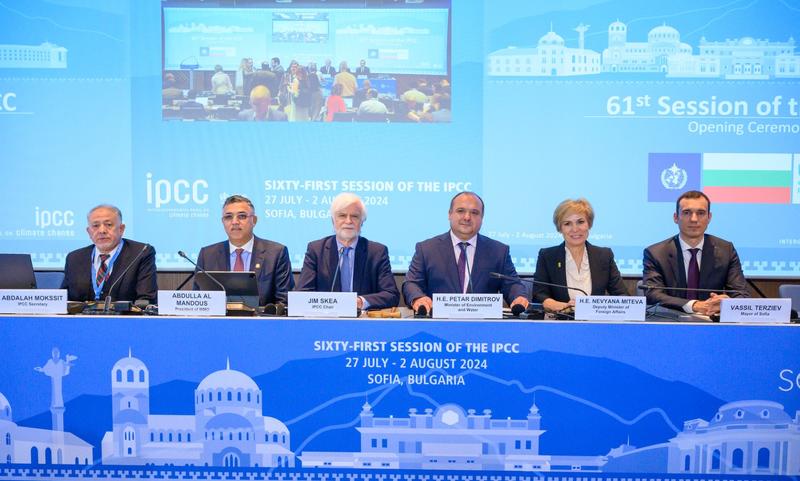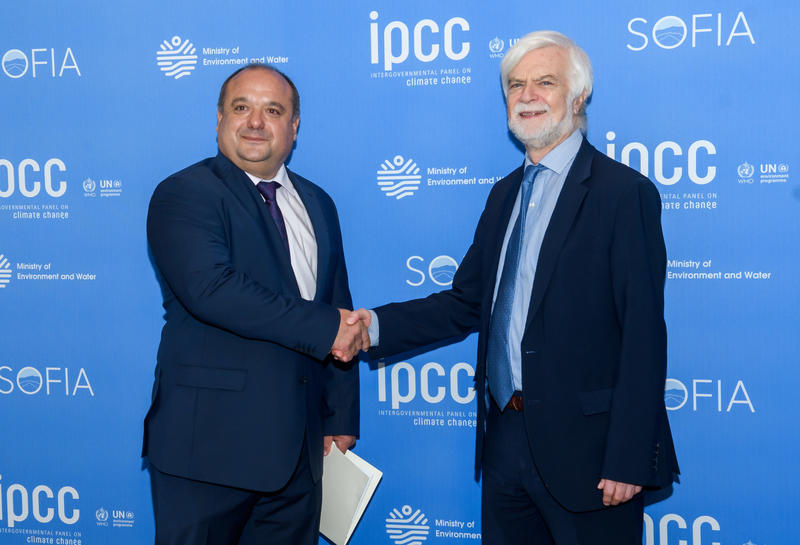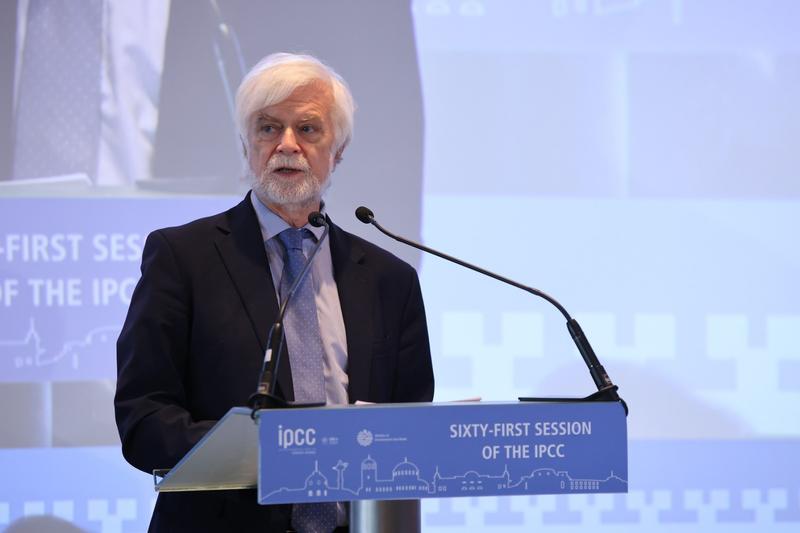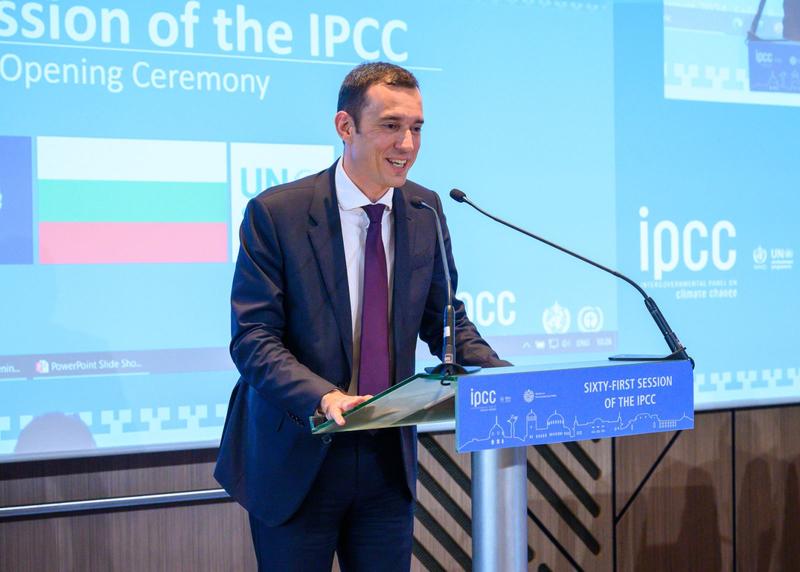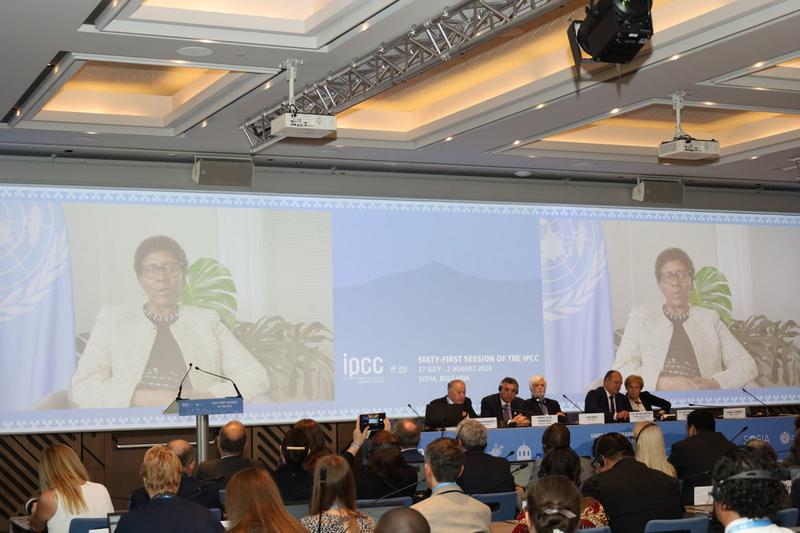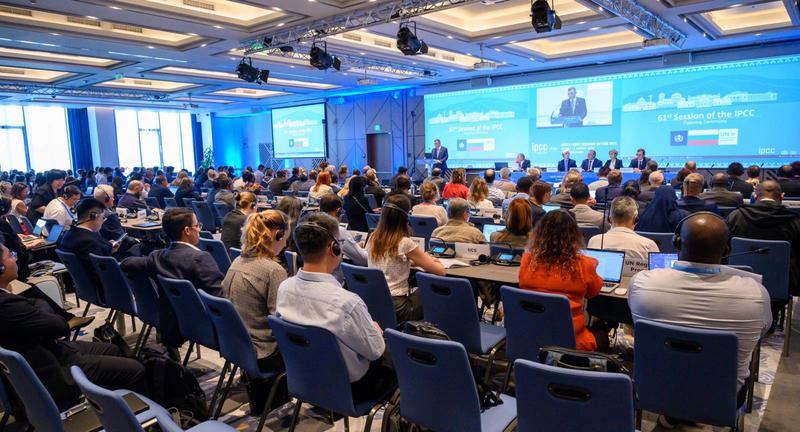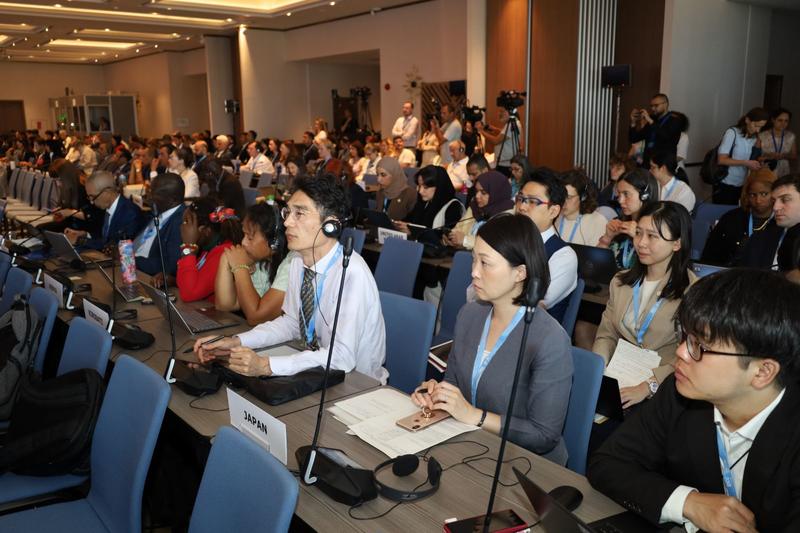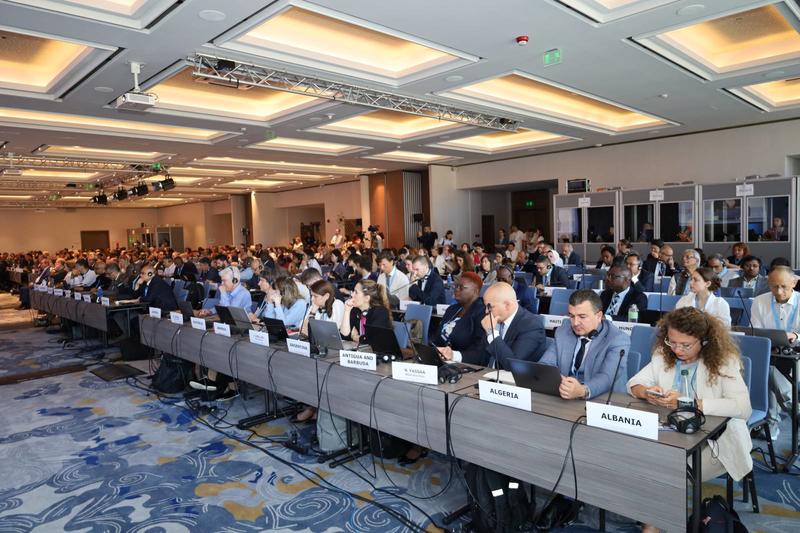Bulgaria hosts the 61st session of the Intergovernmental Panel on Climate Change (IPCC)
27 Jul, 2024 | 14:45- Minister Petar Dimitrov: The MOEW works to make Bulgaria a global centre of climate science
The main goal of the Ministry of Environment and Water (MOEW) is to make Bulgaria a global climate science hub and to have our policies based on science. This was stated by the Minister of Environment and Water Petar Dimitrov today at the opening of the 61st Plenary Session of the Intergovernmental Panel on Climate Change (IPCC) at the Grand Hotel Millennium in Sofia.
From 27 July to 2 August, nearly 500 delegates from the panel's 150 member countries will discuss important issues related to the drafting of the organisation's reports during the Seventh Assessment Cycle, which began last July with the election of a new chair and new IPCC Bureau members.
"Bulgaria's hosting of the IPCC session confirms our role as an active participant in global climate diplomacy. We are witnessing more and more extreme weather events - recently the country was engulfed by fires due to high temperatures. This only gives us a general idea of what the future holds and what measures we can take. In order to assess the impact of these changes, we need accurate and detailed scientific research that shows what to expect globally and what measures we can take to mitigate these impacts," said Minister Petar Dimitrov.
IPCC Chairman Jim Skea thanked the government and the Sofia Municipality for the opportunity to have Bulgaria host a meeting where important decisions are to be taken, such as the one on the "Special Report on Climate Change in Cities". He stressed that Sofia's hosting will focus delegates' attention on climate change in Eastern Europe, a topic that has not been on the agenda so far. "We want to engage the Bulgarian scientific community in the activities of our international organisation and, last but not least, to raise the level of public awareness in Bulgaria about climate change," Jim Skea highlighted. "The importance of our work in the coming days deserves the full attention and engagement of the delegates," said Skea. He reminded the participants in the session of their role during the debates for seeking consensus and finding solutions, which is only possible in a spirit of mutual respect.
The delegates, representing the governments of the member countries of the Panel and the observer organizations, were welcomed by the President of the World Meteorological Organization (WMO) Abdullah Al Mandous, the Mayor of Sofia Municipality Vasil Terziev, and the Deputy Minister of Foreign Affairs Nevyana Miteva.
"One of our most ambitious goals is for Sofia to become a carbon neutral city by 2030. I am proud to be able to say that Sofia is already taking significant steps in this direction," said Mayor Vasil Terziev. "The climate crisis is not only a severe challenge that we are facing, but it also amplifies all other economic and social problems. The role of the Intergovernmental Panel on Climate Change is to provide scientific information that governments at all levels can use to develop climate policy," said Deputy Foreign Minister Nevyana Miteva.
Special video messages to the delegates were delivered by Elizabeth Mrema, Deputy Executive Director of the United Nations Environment Programme (UNEP), and Yousef Nasef, Director of the Adaptation Branch of the UNFCCC Secretariat.
Detailed and complete information on the hosting of the IPCC in Bulgaria can be found on the website of the MOEW at the following link https://www.moew.government.bg/bg/klimat/ipcc/
What is the IPCC
The Intergovernmental Panel on Climate Change is the United Nations body for assessing the science related to climate change. It was established by the United Nations Environment Programme (UNEP) and the World Meteorological Organization (WMO) in 1988 to provide policy leaders with periodic scientific assessments of climate change, its impacts and risks, and to propose adaptation and mitigation strategies. In the same year, the UN General Assembly endorsed action by the WMO and the UNEP to jointly establish the IPCC. 195 countries are members of the panel.
IPCC assessments provide governments at all levels with scientific information for developing climate policies. IPCC assessments are a key contribution to international negotiations to tackle climate change. IPCC reports are produced and reviewed in several stages, ensuring objectivity and transparency.
For more information, visit www.ipcc.ch. The website includes information materials, including videos about the IPCC and videos of outreach events, webinars or live streaming. Most videos published by the IPCC can be found on YouTube.
